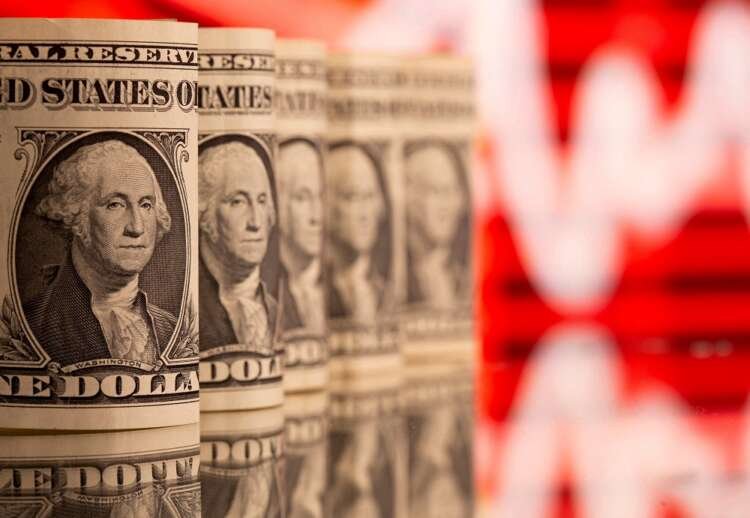Dollar weakens ahead of key U.S. inflation data
Published by Jessica Weisman-Pitts
Posted on September 13, 2022
3 min readLast updated: February 4, 2026

Published by Jessica Weisman-Pitts
Posted on September 13, 2022
3 min readLast updated: February 4, 2026

By Samuel Indyk
LONDON (Reuters) – The dollar eased further on Tuesday ahead of U.S. inflation data that could show some signs of softening, while the euro found its footing above parity on hawkish comments from policymakers that rates would need to increase further.
The dollar index, which measures the greenback against a basket of six currencies including the euro, eased 0.4% to 107.76, after falling 0.7% on Monday, the largest daily decline since August 10.
It’s now fallen over 2.7% from last week’s 20-year peak.
The euro rose 0.6% versus the greenback to $1.0180, after hitting a nearly one-month high of $1.0198 in the previous session.
The dollar was softer against the yen, down 0.5% at 142.06, as the Japanese currency found support from comments from officials signalling the government could take steps to counter excessive yen weakness.
U.S. inflation figures are due at 1230 GMT and the consensus is for the core consumer price index to have risen 0.3% month-on-month in August, at the same pace as July. Headline inflation is expected to decline 0.1% month-on-month.
Recent dollar gains have slowed on market expectations that peaking inflation will mean less aggressive interest rate hikes from the Federal Reserve.
“I think the Fed will hike by 75 basis points even if it is a soft number,” said Niels Christensen, chief analyst at Nordea. “But they then might say it’s time to slow the pace.”
“(Federal Reserve Chair) Jerome Powell was quite firm when he spoke last week. He made it very clear that they will fight inflation.”
Fed funds futures are fully pricing in a half point rate rise at next week’s Federal Open Market Committee meeting and currently imply a greater than 85% chance of a larger 75 bp increase.
The euro has enjoyed a respite above parity due to hawkish noises from the European Central Bank. Last week, five sources close to the matter said Europe’s benchmark rate could rise to 2% or beyond to tame inflation.
On Tuesday, German harmonised inflation was confirmed at 8.8% in August, unrevised from the preliminary reading. Spanish consumer prices rose 10.5% year-on-year in August, slightly higher than the flash estimate.
Eyes were also on the gas situation in Europe, with the front month Dutch gas delivery contract, the benchmark for Europe, steady on Tuesday but still down by around 45% from its peak in August. [NG/EU]
“The decline in gas prices is one more reason for the bounce in the euro,” Nordea’s Christensen said, although he believes the recent strength to be short-lived as near-term tailwinds for the single currency fade.
“The situation would improve for the euro if gas prices were to move even further down, but we have to see that materialising to change our view,” Christensen added, expecting the euro to fall to $0.95 towards the end of the year.
Meanwhile, sterling rose to a two-week high against the dollar after the British jobless rate dropped to its lowest level since 1974, while wages excluding bonuses rose by 5.2%, the highest rate since the three months to August 2021.
The pound was last up 0.4% at $1.1731.
(Reporting by Samuel Indyk in London, additional reporting by Rae Wee in Singapore; Editing by Ana Nicolaci da Costa and Chizu Nomiyama)
Inflation is the rate at which the general level of prices for goods and services rises, eroding purchasing power. It is typically measured by the Consumer Price Index (CPI) or the Producer Price Index (PPI).
A foreign currency is any currency that is not the domestic currency of a particular country. It is used in international transactions and can fluctuate in value based on market conditions.
Interest rates are the cost of borrowing money or the return on savings, expressed as a percentage of the principal amount. They are influenced by central bank policies and economic conditions.
The dollar index measures the value of the United States dollar against a basket of foreign currencies. It is used to gauge the strength of the dollar in the global market.
Economic growth refers to the increase in the production of goods and services in an economy over a period of time, typically measured by the rise in Gross Domestic Product (GDP).
Explore more articles in the Trading category











